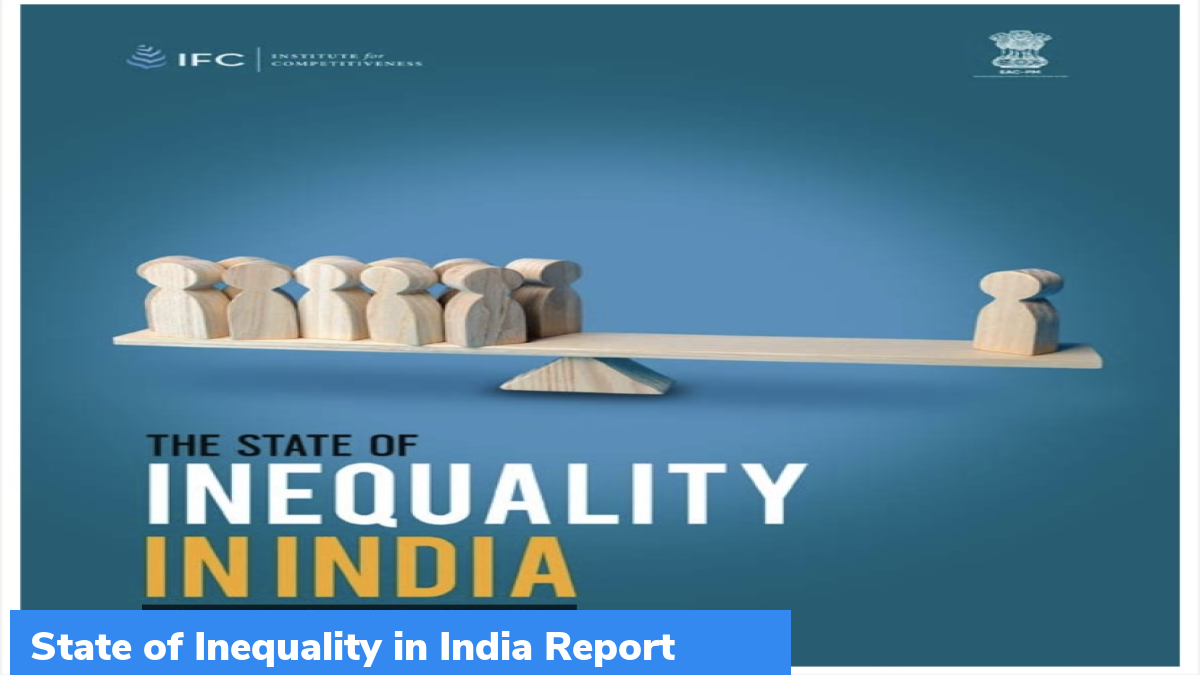State of Inequality in India Report
Dr. Bibek Debroy, Chairman of the Economic Advisory Council to the Prime Minister (EAC-PM) recently released the “State of Inequality in India” Report, which was written by the Institute for Competitiveness.
What is the report about?
The report puts forward a comprehensive analysis of inequality in the country. It collates data on inequities across various sectors such as health, education, and the labor market, which makes people more vulnerable to poverty and leads to multidimensional poverty. The report also highlights how inequality affects the society
The report is an attempt to stock-take measures introduced by the government. It also contributes to the policy debates, formulation of strategies, and preparing a roadmap for social progress.
Which areas are considered by the report?
The report consists of two parts – Economic Facets and Socio-Economic Manifestations. It looks at five key areas that influence inequality. They are income distribution and labor market dynamics, health, education, and household characteristics.
The report is based on the data derived from various rounds of the Periodic Labor Force Survey (PLFS), National Family and Health Survey (NFHS), and UDISE+.
What are the findings of the report?
The report goes beyond the wealth estimates and highlights estimates of the income distribution. According to the report, wealth concentration as a measure of inequality does not show the changes in the purchasing capacity of people. Using income data from PLFS 2019-20, the report showed that a salary of Rs 25,000 per month is amongst the top 10% of total incomes earned in India.
There is a significant improvement in the infrastructural capacity of the health sector. However, nutritional deprivation remains a big concern. High out-of-pocket expenditure also directly affects inequality.
According to the report, cognitive development from the foundational years of a child is a long-term corrective measure for inequality. The government’s focus on providing access to sanitation and safe drinking water ensured dignified life for many. According to NFHS-5 (2019-21), 96% of households have access to safe drinking water.
What are the recommendations?
Recommendations made in the report include establishing universal basic income (UBI), creating jobs, increasing the budget for social protection schemes, etc.
Month: Current Affairs - May, 2022
Category: Reports & Indexes Current Affairs


